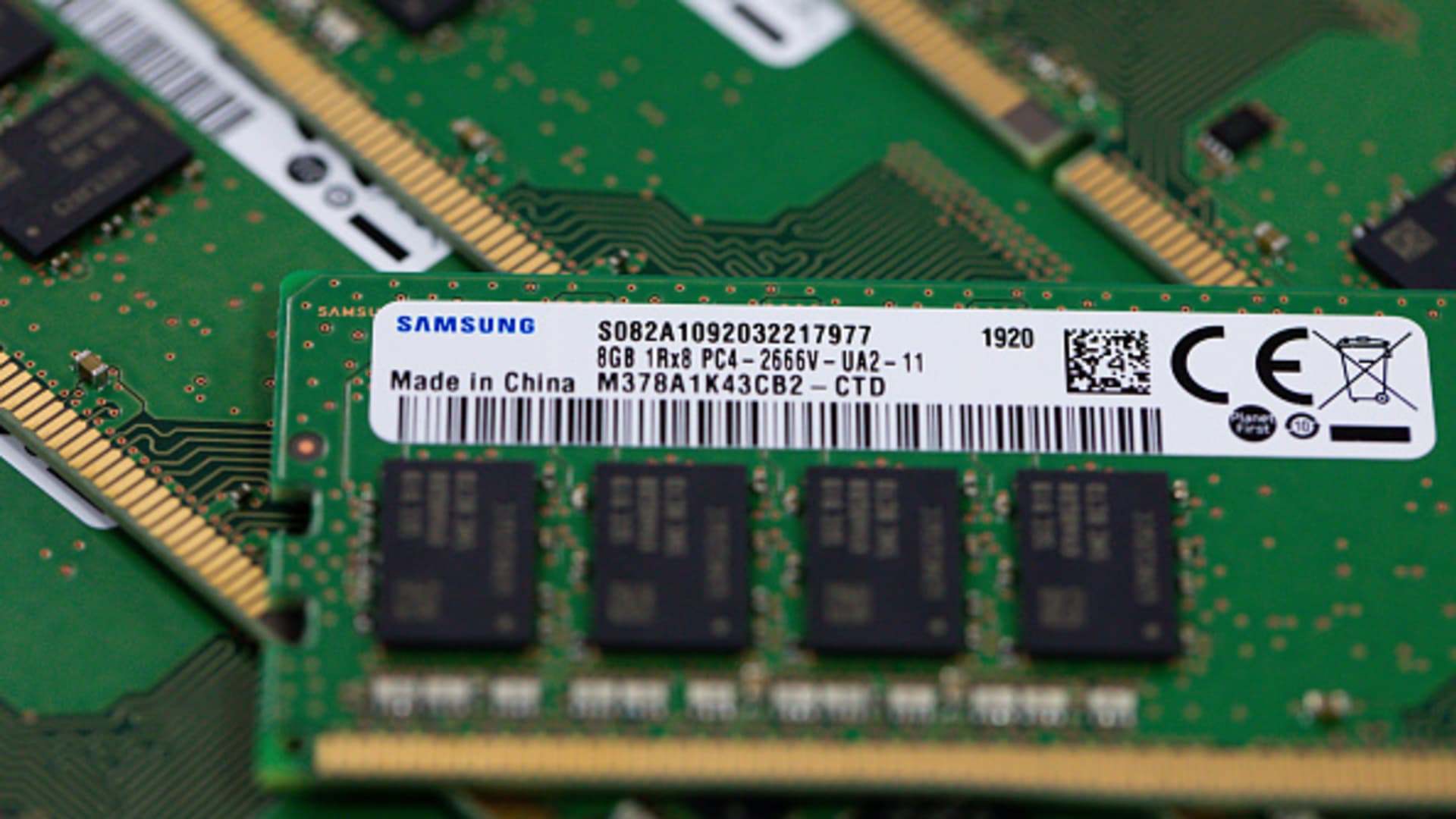Samsung aims to make the world’s most advanced chips in 5 years, as it plays catch up with TSMC


Samsung said Tuesday it aims to make some of the most advanced semiconductors in the world in five years’ time, as the race between the South Korean electronics giant and the world’s largest chip maker TSMC heats up.
The company laid out a roadmap for its chip production plans, and said it will begin making chips with a 2 nanometer process in 2025 and 1.4 nanometer process in 2027.
The nanometer figure refers to the size of each individual transistor on a chip. The smaller the transistor, the more of them can be packed onto a single semiconductor. Typically, a reduction in nanometer size can yield more powerful and efficient chips.
For comparison, the processor in Apple‘s latest iPhone 14 Pro and Pro Max models is a 4 nanometer chip.
Samsung began producing 3 nanometer chips earlier this year.
Shares of Samsung in South Korea closed nearly 4% higher on Tuesday.
The South Korean firm, known for consumer electronics and memory chips, is looking to ramp up its contract chipmaking, or foundry business, in a bid to catch up with Taiwan’s TSMC.
Samsung is the second-biggest foundry globally by revenue, with a 17.3% market share compared to 52.9% for TSMC, according to TrendForce.
For its part, TSMC expects to begin 3nm chip production this year with production of 2nm set to begin in 2025. However, the company has not officially announced plans to mass produce 1.4nm chips.
“This is the first time that SEC (Samsung Electronics) guides for its long term foundry roadmap and I think it is more aggressive than TSMC and market expectations,” SK Kim, analyst at Daiwa Capital Markets, told CNBC.
Samsung’s ambitious plans come amid global economic headwinds and signs of a slowdown in semiconductor demand. Global chip industry sales fell 3.4% in August compared to July, according to the U.S.-based Semiconductor Industry Association.
Despite this, Samsung said it plans to expand its production capacity for the most advanced chips by more than three times by 2027 compared to this year, highlighting its bullishness on future demand.
These include its factories in the U.S. Samsung has a plant in Austin, Texas, and is currently building a $17 billion facility in Taylor in the same state.
Washington has been looking to attract chipmakers like Samsung and TSMC to set up factories in the U.S. so that it can reduce reliance on the manufacturing hubs of Taiwan and South Korea.
While Samsung has put a big focus on cutting edge chips, the company also said semiconductors for high-performance computing, automotive and 5G uses will make up more than 50% of its foundry business by 2027. These are usually less advanced chips.
This post has been syndicated from a third-party source. View the original article here.




